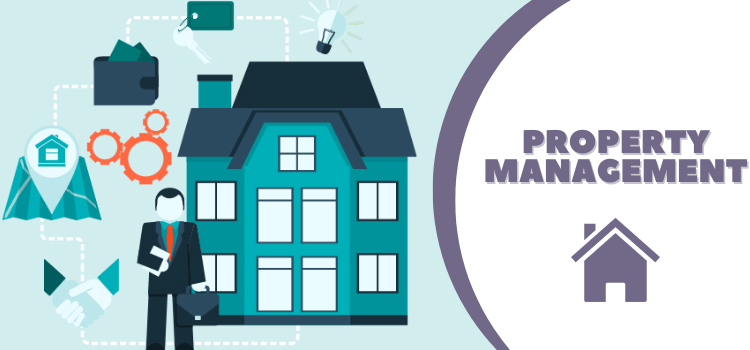Have you ever played Monopoly and wondered what it would be like to manage those tiny green houses or red hotels in real life? Welcome to the world of property management.
No longer is this simply a game of luck. It’s about making strategic decisions, juggling multiple tasks, and staying ahead of curveballs.
Think keeping tenants happy, fixing leaky roofs at midnight, or negotiating leases that benefit everyone involved.
Imagine being responsible for someone else’s investment—their residential home, commercial office space, industrial warehouse, or even special-purpose properties.

The stakes are high, but so is the reward when done right!
Get ready to dive deep into our guide on property management. We’ll explore all its types, from handling residential properties to managing office spaces. We’ll tackle licensing needs and figure out when it’s smart to hire a professional manager. Hold tight! This journey might just change your perspective on real estate.
Types of Property Management
The world of property management is diverse, encompassing various types. Don’t worry, we’ll guide you through the basics of this multifaceted industry.
Residential Property Management
If you’ve ever lived in an apartment complex or rented a house, chances are good that your landlord wasn’t actually the one calling all the shots.
Instead, they probably employed residential property managers to take care of everything from collecting rent to maintaining properties and handling tenant issues.
They essentially act as middlemen between tenants and landlords, ensuring smooth operations for both parties.
Commercial Property Management
In contrast with residential spaces such as apartments and houses, commercial property management deals with office buildings, retail centers like malls or shopping plazas, and other business-related premises.
The goal here? To make sure businesses have comfortable environments where their operations can thrive.
Industrial Property Management
This type involves managing industrial facilities like warehouses or manufacturing plants—places that serve crucial roles in supply chains but aren’t typically open to public foot traffic, unlike commercial properties (Investopedia).
Industrial managers must understand not only real estate aspects but also nuances specific to the industries served by these facilities.
Special-Purpose Property Management
Last but certainly not least: special-purpose property management encompasses unique types, including stadiums (Stadium Management Forum), churches (Church Law & Tax), and even schools (SchoolDude Solutions). These managers must have a keen understanding of their properties’ specific purposes to ensure they’re managed effectively.
You might be pondering what bearing this has on your real estate decisions. Whether it’s for residential or commercial use, industrial or special-purpose—each type comes with its own unique set of considerations. But remember: having an expert by your side can make all the difference.
Related Post: Rental Property Management in Tampa
Special Considerations for Property Management
Property management needs to be tailored to the specific state laws, type of property, and owner’s expectations.
It’s more like a tailored suit – it needs to fit perfectly with the state laws, type of property, and owner’s expectations. Let’s dive into some special considerations you need to make sure are in place.
Licensing Requirements Vary by State
The first hurdle in starting your property management journey could be obtaining the necessary licenses. Regulations concerning licensing can differ substantially from one state to the next.
For example, California requires property managers to have a real estate broker’s license if they lease or rent properties, collect rents, or list properties for rent. But states like Vermont don’t require any licensing at all.
This difference makes it crucial that prospective property managers get familiar with their local regulations before taking the leap.
Different Properties Need Different Management Styles
No two properties are alike, and this means each demands unique handling too. Whether managing residential homes or commercial spaces, such as office buildings, can greatly impact how you approach your role as manager.
- Residential: This includes single-family homes and apartments where people live full-time. The focus here is on maintaining livability standards and addressing tenant concerns promptly.
- Commercial: These include retail spaces and offices that serve businesses’ needs rather than individuals’. A greater emphasis is placed on contractual terms because business tenants often sign long-term leases compared to short-term ones common among residential tenants.
Another crucial aspect is understanding the expectations of property owners. Some may need full-service management, from tenant screening to routine maintenance and rent collection. Others might only ask for help with certain tasks, like finding tenants or handling legal matters.
When You Need a Property Manager
If you’re juggling multiple properties, work responsibilities, and personal commitments, it might be time to consider getting help.
And who better than a property manager? They are professionals skilled in handling day-to-day tasks related to your investment properties.
A property manager can take off some of the load by managing rent collection, tenant issues, maintenance requests, and even marketing your property. When should you recruit a property manager?
Tenant Management is Overwhelming
If you find yourself spending more hours dealing with tenants than on other important tasks or hobbies, it may be an indication that professional assistance could provide much-needed relief.
This includes everything from screening potential renters to addressing their concerns once they’ve moved in.
It’s no easy feat to keep everyone happy. So if this sounds like your situation – remember that there’s no shame in asking for help.
Maintenance Requests are Piling Up
Property management isn’t just about people; it also involves taking care of the physical building itself. If repair requests seem never-ending or you’re constantly chasing after contractors – maybe let someone else tackle these challenges head-on.
A reliable property manager will have established relationships with trusted vendors, which ensure prompt responses at reasonable costs while ensuring top-quality service too.
You Own Multiple Properties Or Units
The more rental units or properties you own, especially if they’re spread across different locations, the tougher it becomes to manage them effectively all by yourself.
A seasoned property manager will streamline operations, making sure nothing slips through cracks and that each asset is well taken care of.
Plus, the more properties you have, the bigger your bottom line. Let a property manager help protect and grow that investment.
Frequent Travel or Distance is an Issue
If you live far from your rental property or travel frequently, managing day-to-day operations can become challenging.
It’s hard to address tenant issues promptly when you’re miles away. In such cases, having a local expert on hand could be invaluable.
A skilled property manager can quickly deal with emergencies, making your tenants feel valued and safe at all times.
Conclusion
So, you’ve journeyed with us through the landscape of property management. From residential to commercial and special-purpose properties, we’ve seen it all. We learned what is property management – it’s not just about collecting rent checks but also dealing with unexpected repairs and ensuring happy tenants.
Remember those special considerations? Licenses are a must-have in many states. So make sure your ducks are in a row before diving into this venture.
If juggling tasks isn’t your strong suit or time isn’t on your side, don’t hesitate to hire professionals. They can bring peace of mind by keeping everything running smoothly. The world of real estate is wide open for exploration! Here’s hoping our guide helps light up the path as you navigate through it!






Leave a Reply